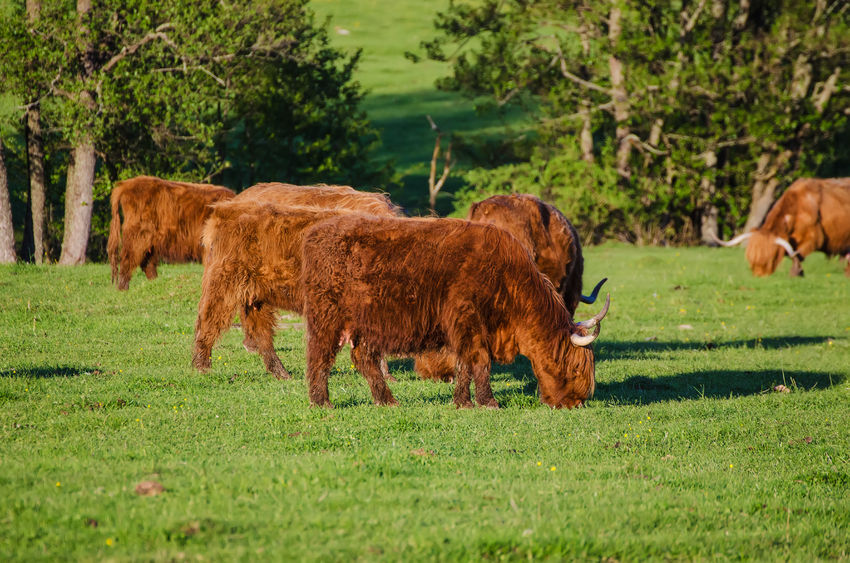New collaboration to focus on cutting livestock emissions

New technology could reduce the powerful greenhouse gases released by livestock to help agriculture reach carbon emissions targets.
The project, between Durham University, sustainable technologies leader Johnson Matthey, Nottingham University and NFU Energy, will prevent methane from being released into the wider atmosphere.
The £250,000 collaboration will test the feasibility of catalytic equipment to safely decompose methane in barn air, where it is most concentrated.
Methane, released when livestock belch and pass wind, is about 30 times as effective as carbon dioxide in trapping heat over a 100 year timescale.
The methane released by animals such as cows accounts for about 50% of agricultural GHG emissions and represents a barrier for the industry to meet net zero targets.
If successful, the team hopes that the project could pave the way for a new 'farm-ready' technology which could have a significant impact on livestock emissions.
Dr Simon Beaumont, of Durham University, said: “Methane from livestock – or ‘moothane’– accounts for about 50% of greenhouse gas emissions from the agricultural sector, and around one third of this is released indoors.
“Whilst ‘moothane’ is a significant challenge for the farming industry, there is also a real opportunity to solve this challenge and in doing so, help this industry take a big step towards carbon-reduction.”
The project brings together experts from academia and industry to take a multidisciplinary approach to tackling the ‘moothane’ problem.
Johnson Matthey, a leader in sustainable technologies, has existing methane-catalyst technology - COMET® technology - for use within underground mining operations.
He hopes to re-configure the technology through the new project to help address the needs of the livestock farming industry.
The concentration of methane emitted in the ventilation air from mines is low, typically less than 1%, which makes performing any useful chemistry challenging.
The concentration of methane in dairy barns is even lower than air from mines, presenting even greater technical challenges.
Durham University will be leading on testing the catalysts within this existing technology, to understand if it can work in cattle barns where the methane in the air is very diluted.
Experts there will also investigate what impact other variables, such as barn design, time of year and other components in barn air, may have.
Researchers from the University of Nottingham will assess the financial viability and overall climate impacts of deploying catalytic technologies to manage livestock methane emissions in the UK.
As a leading energy consultancy with a particular focus on agriculture, NFU Energy will be bring specialist knowledge around industry and market constraints to the project.
The hope is that by combining expertise from industry and academia, this project will help accelerate progress towards a potential solution that can be easily deployed by farmers to help reduce the climate impacts of livestock farming.
Speaking about the project's funding, Defra science and innovation minister, Jo Churchill said: “Innovation is a vital way to address the challenges currently facing the agricultural and horticultural sectors.
"New ideas, technologies and processes will play a key role in helping farmers, growers and businesses to become more productive.
"They will also enable the sector to be more environmentally sustainable and resilient, whilst helping it achieve its net zero ambitions.”








